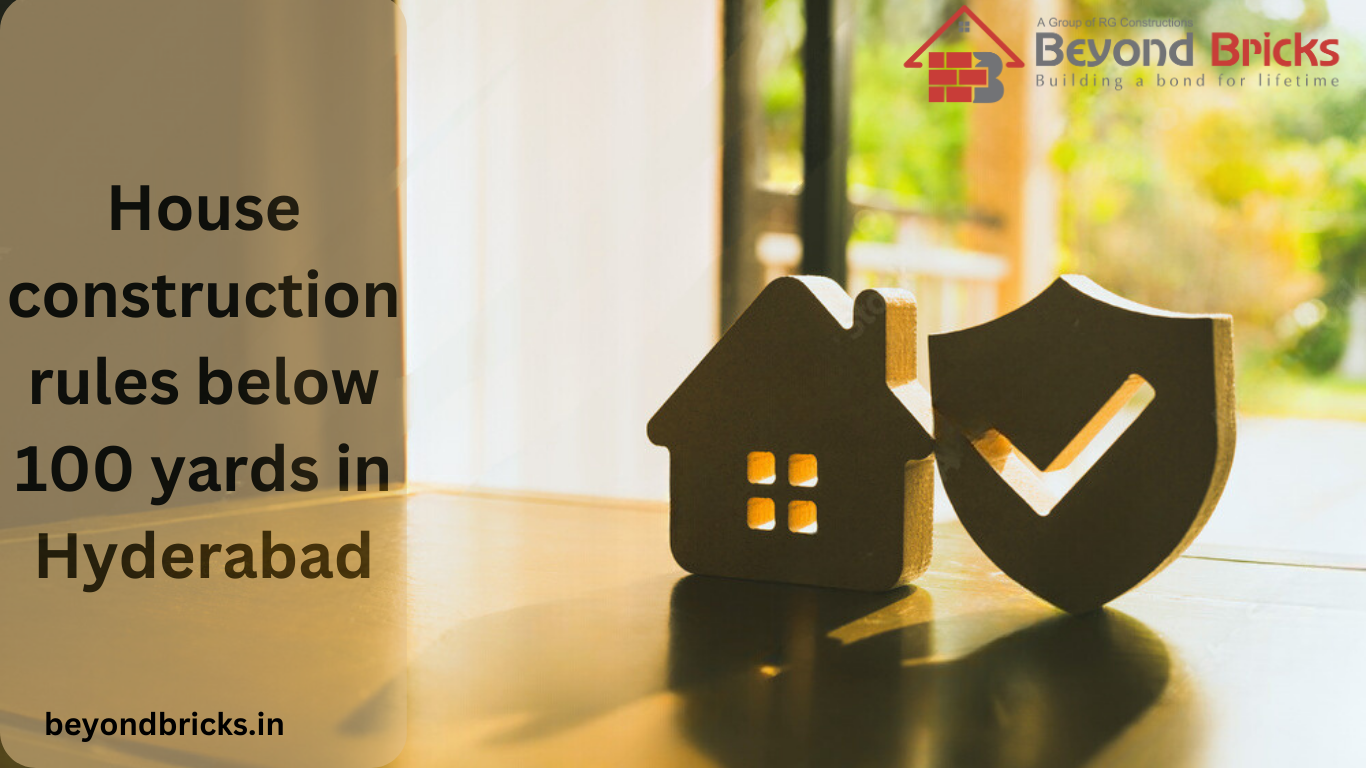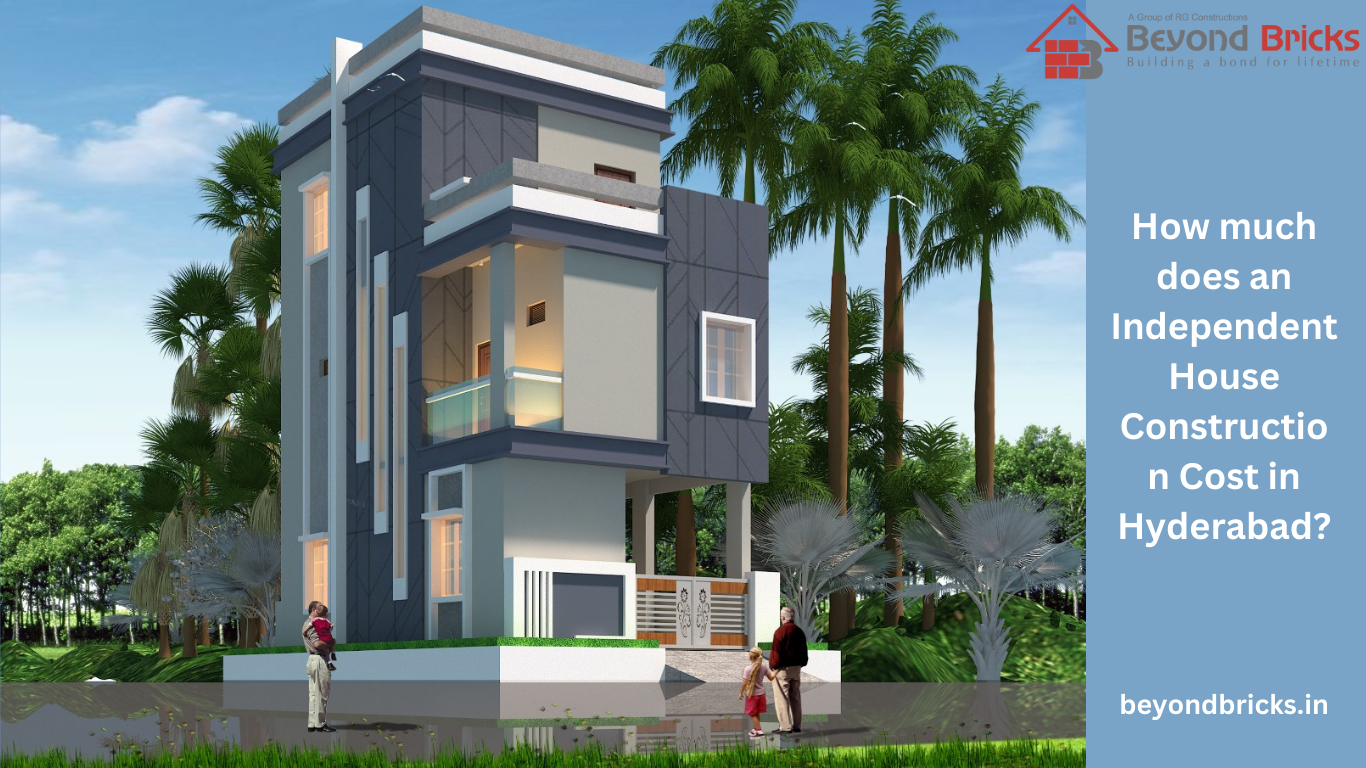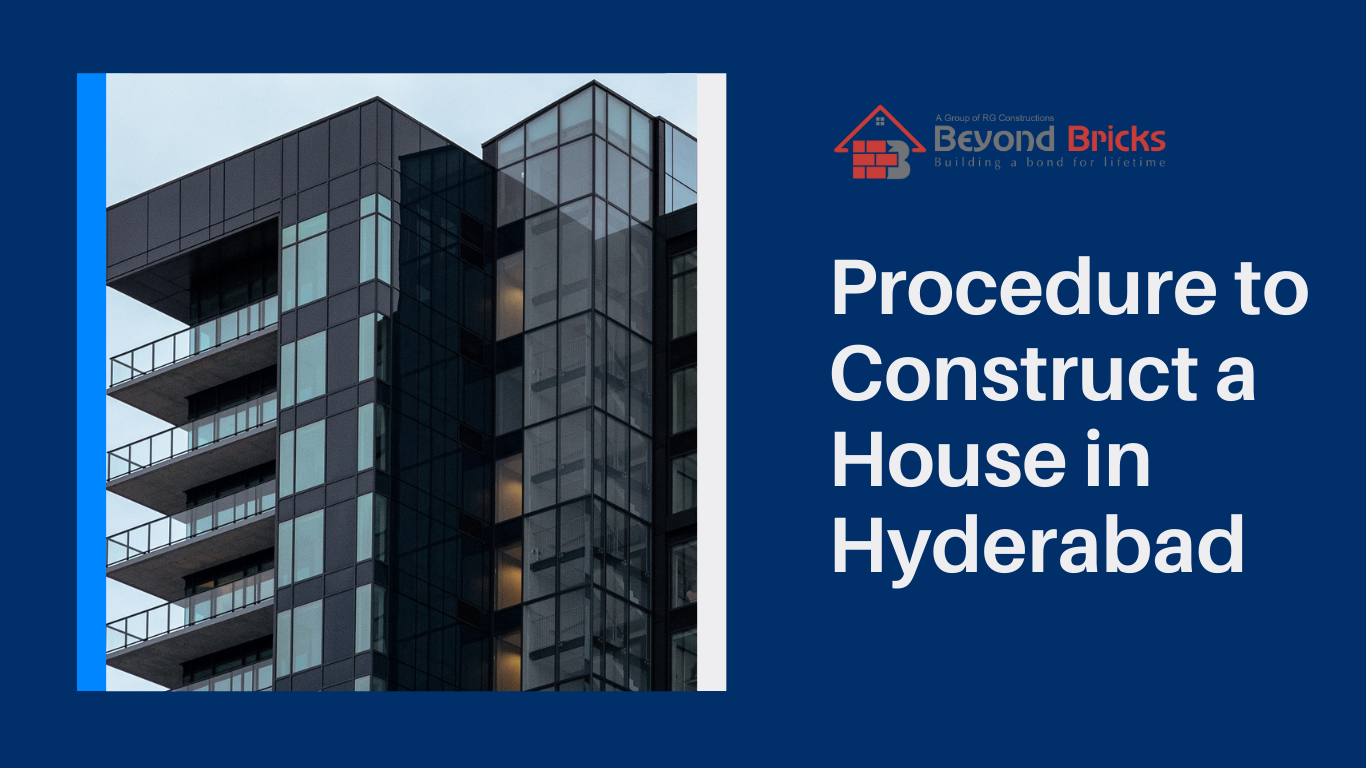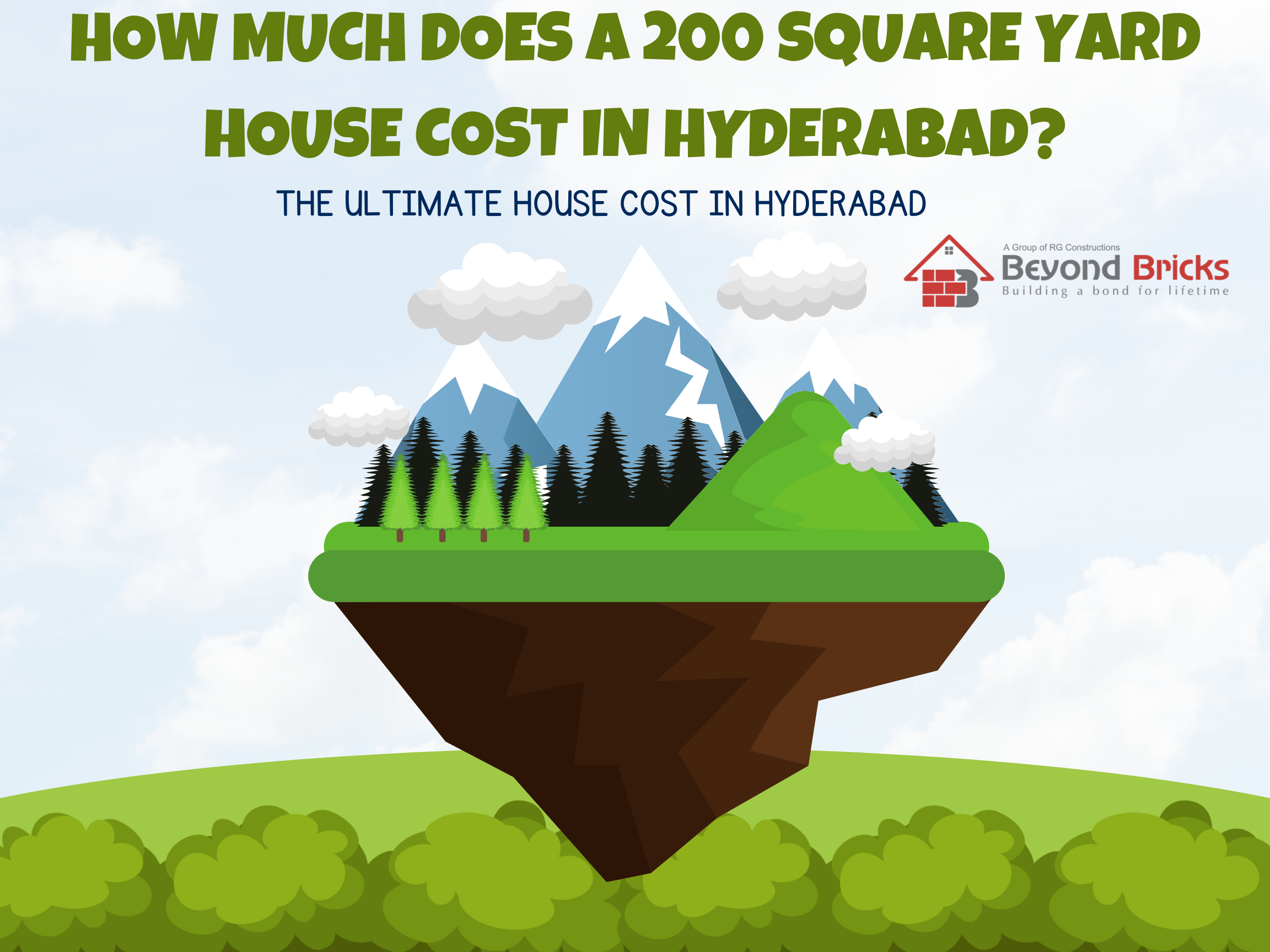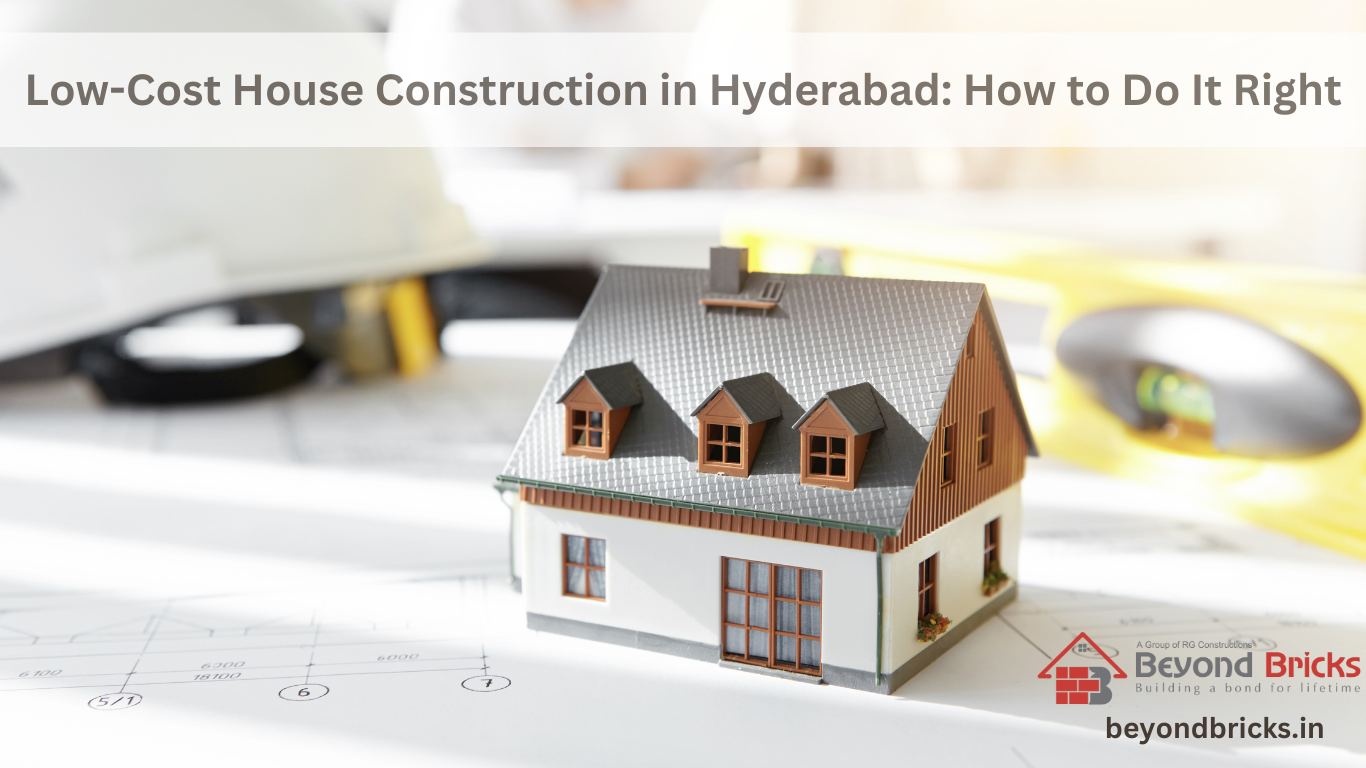When it comes to house construction in Hyderabad, understanding the rules and regulations is essential to ensure a smooth and hassle-free process. In this article, we will walk you through the house construction rules below 100 yards in Hyderabad. Whether you are a homeowner planning to build your dream house or a real estate developer looking to undertake a project, this article will provide you with the necessary information to navigate the construction process within the legal framework.
Table of Contents
- House Construction Rules Below 100 Yards: An Overview
- Understanding Zoning Regulations
- Building Plan Approval Process
- Structural Design and Safety Measures
- Electrical and Plumbing Guidelines
- Parking and Access Requirements
- Rainwater Harvesting Systems
- Fencing and Boundary Rules
- Landscape and Outdoor Spaces
- Ventilation and Natural Lighting
- Building Material Specifications
- Occupancy Certificate and Inspections
- Solar Power Installation Guidelines
- Upgradation and Renovation Rules
- House Construction Cost Estimation
- Hiring Professional Architects and Contractors
- Frequently Asked Questions (FAQs)
- Conclusion
1. House construction rules below 100 yards in Hyderabad: An Overview
Building a house in Hyderabad requires adherence to specific rules and regulations set by the local governing authorities. These rules are in place to ensure the safety, aesthetics, and functionality of residential structures. For plots below 100 yards, there are additional guidelines that need to be followed to optimize the use of limited space. Let's delve into the details of these rules and how they impact the construction process.
Here are the House construction rules below 100 yards in Hyderabad:
- Building permission is not required for plot sizes up to 75 square yards.
- For plot sizes from 75 square yards to 600 square yards, self-certification is required.
- For plot sizes above 600 square yards and more than 10 meters in height, a single-window will be declared approval.
- The minimum setback on all sides of the building shall be as follows:
- For plot sizes up to 100 square yards: 2.5 meters
- For plot sizes above 100 square yards: 3 meters
- The maximum height of the building shall be as follows:
- For plot sizes up to 100 square yards: 9 meters
- For plot sizes above 100 square yards: 12 meters
- The building shall be constructed in accordance with the Hyderabad Revised Building Rules, 2006.
You can find more information about the house construction rules in Hyderabad on the website of the Greater Hyderabad Municipal Corporation (GHMC).
2. Understanding Zoning Regulations
Before starting any construction project, it is crucial to understand the zoning regulations applicable to the plot. Zoning regulations determine the type of activities that can be carried out on a particular property. In Hyderabad, residential zones have specific rules regarding setbacks, floor area ratio (FAR), height restrictions, and land use. Familiarize yourself with the zoning regulations to ensure compliance with the designated land use and construction norms.
Zoning regulations are a set of rules that govern the use of land in a particular area. They are designed to ensure that land is used in a way that is compatible with the surrounding area and that meets the needs of the community.
In Hyderabad, the zoning regulations are administered by the Greater Hyderabad Municipal Corporation (GHMC). The GHMC has divided the city into different zones, each of which has its own set of zoning regulations.
The zoning regulations in Hyderabad cover a wide range of topics, including:
- The types of buildings that can be built in each zone
- The height of buildings
- The setback requirements (the minimum distance between a building and the property line)
- The parking requirements
- The noise levels
- The types of businesses that can operate in each zone
It is important to note that the zoning regulations in Hyderabad are constantly being updated. It is always a good idea to check with the GHMC to ensure that you are up-to-date on the latest regulations.
Here are some of the most important zoning regulations in Hyderabad:
- Residential zones: Residential zones are areas that are primarily used for residential purposes. The zoning regulations in residential zones typically restrict the height of buildings, the number of floors, and the types of businesses that can operate in the area.
- Commercial zones: Commercial zones are areas that are primarily used for commercial purposes. The zoning regulations in commercial zones typically allow for taller buildings and more businesses.
- Industrial zones: Industrial zones are areas that are primarily used for industrial purposes. The zoning regulations in industrial zones typically allow for even taller buildings and more businesses.
- Mixed-use zones: Mixed-use zones are areas that are used for a combination of residential, commercial, and industrial purposes. The zoning regulations in mixed-use zones typically allow for a variety of different uses.
If you are planning to build a new property in Hyderabad, it is important to check with the GHMC to ensure that your plans comply with the zoning regulations. You can find more information about the zoning regulations in Hyderabad on the website of the GHMC.
3. Building Plan Approval Process
The building plan approval process is a critical step in house construction. It involves submitting the architectural drawings, structural plans, and other necessary documents to the local municipality or development authority for review and approval. The authorities assess the proposed construction for compliance with building codes, safety standards, and zoning regulations. It is advisable to engage a qualified architect or a licensed professional to prepare and submit the building plans on your behalf, ensuring accuracy and adherence to the guidelines.
The building plan approval process in Hyderabad is a multi-step process that is overseen by the Greater Hyderabad Municipal Corporation (GHMC). The process can be complex and time-consuming, so it is important to be familiar with the steps involved.
The first step in the process is to submit an application to the GHMC. The application must include a number of documents, including the building plan, site plan, layout plan, structural calculations, fire safety certificate, electrical plan, plumbing plan, ownership documents, and NOC from the neighbours.
Once the application is submitted, the GHMC will review the documents and conduct an inspection of the property. If the documents are in order and the property meets the zoning regulations, the GHMC will issue a building plan approval.
The building plan approval is valid for a period of three years. If construction is not started within three years, the approval will expire and the process will have to be started again.
The following are the steps involved in the building plan approval process in Hyderabad:
- Submit an application to the GHMC: The first step is to submit an application to the GHMC. The application can be submitted online or in person at the GHMC office.
- Provide the necessary documents: The application must be accompanied by a number of documents, including the building plan, site plan, layout plan, structural calculations, fire safety certificate, electrical plan, plumbing plan, ownership documents, and NOC from the neighbours.
- Review of the application: The GHMC will review the application and the documents submitted. If the application is complete and the documents are in order, the GHMC will schedule an inspection of the property.
- Inspection of the property: The GHMC will inspect the property to ensure that it meets the zoning regulations. If the property meets the zoning regulations, the GHMC will issue a building plan approval.
- Issuance of the building plan approval: If the property meets the zoning regulations, the GHMC will issue a building plan approval. The building plan approval is valid for a period of three years.
The building plan approval process can be complex and time-consuming. It is important to be familiar with the steps involved and to submit the necessary documents in a timely manner.
4. Structural Design and Safety Measures
The structural design of a house is essential to ensure its stability and longevity. Structural engineers play a crucial role in designing the foundation, columns, beams, and slabs of the building. They consider factors such as soil conditions, load-bearing capacity, and seismic zone classifications to create a safe and robust structure. Incorporating safety measures like earthquake-resistant design, fire-resistant materials, and proper ventilation systems are vital considerations for house construction below 100 yards in Hyderabad.
Structural design and safety measures in Hyderabad are governed by the Greater Hyderabad Municipal Corporation (GHMC). The GHMC has a set of guidelines that must be followed when designing and constructing buildings in the city. These guidelines are designed to ensure that buildings are safe and structurally sound.
Some of the key structural design and safety measures that are required in Hyderabad include:
- The use of strong and durable materials: The materials used to construct buildings in Hyderabad must be strong and durable. This is to ensure that the buildings can withstand the forces of nature, such as earthquakes and storms.
- The use of proper engineering practices: The construction of buildings in Hyderabad must be carried out in accordance with proper engineering practices. This is to ensure that the buildings are designed and constructed in a way that is safe and sound.
- The use of quality control measures: The construction of buildings in Hyderabad must be subject to quality control measures. This is to ensure that the buildings are constructed to the highest standards.
- The use of fire safety measures: The construction of buildings in Hyderabad must include fire safety measures. This is to ensure that the buildings are safe in the event of a fire.
In addition to these structural design and safety measures, there are a number of other measures that can be taken to ensure the safety of buildings in Hyderabad. These measures include:
- Regular inspections: Buildings in Hyderabad should be inspected on a regular basis to ensure that they are structurally sound.
- Maintenance: Buildings in Hyderabad should be properly maintained to ensure that they remain in good condition.
- Awareness: Building owners and occupants should be aware of the safety risks associated with buildings and take steps to mitigate these risks.
By following these structural design and safety measures, it is possible to ensure that buildings in Hyderabad are safe and secure.
Here are some additional tips for ensuring the structural safety of buildings in Hyderabad:
- Hire a qualified structural engineer: The first step is to hire a qualified structural engineer to design the building. The structural engineer will be able to assess the site conditions and design a building that is safe and sound.
- Use high-quality materials: The second step is to use high-quality materials when constructing the building. This will help to ensure that the building is strong and durable.
- Follow proper construction practices: The third step is to follow proper construction practices when constructing the building. This will help to ensure that the building is built to the highest standards.
- Inspect the building regularly: The fourth step is to inspect the building regularly. This will help to identify any potential problems and take steps to address them.
- Maintain the building properly: The fifth step is to maintain the building properly. This will help to ensure that the building remains in good condition and that any potential problems are addressed.
By following these tips, it is possible to ensure that buildings in Hyderabad are structurally safe.
5. Electrical and Plumbing Guidelines
Electrical and plumbing systems are integral parts of any house. Adhering to the electrical and plumbing guidelines set by the local authorities is essential to ensure safety and efficient functioning. The guidelines specify the minimum requirements for wiring, electrical fixtures, water supply, drainage, and sewage disposal systems. Compliance with these guidelines ensures that the house meets the necessary standards and avoids any potential hazards or legal issues.
6. Parking and Access Requirements
Considering parking and access requirements is crucial, especially when building in densely populated areas. Hyderabad has specific guidelines for providing adequate parking space based on the plot size and type of construction. Understanding these guidelines will help you plan for sufficient parking and ensure convenient access to your property.
7. Rainwater Harvesting Systems
Hyderabad, being a city with variable rainfall patterns, encourages the implementation of rainwater harvesting systems. These systems help capture and store rainwater for later use, reducing the strain on municipal water supply and recharging the groundwater table. Incorporating rainwater harvesting systems in your house construction can contribute to water conservation efforts and reduce water bills.
8. Fencing and Boundary Rules
Defining the boundaries of your property through proper fencing is essential for security and privacy. Hyderabad has specific rules regarding the height, material, and design of boundary walls or fences. Understanding these rules will help you design an aesthetically pleasing and secure boundary for your house.
Some of the fencing and boundary rules in Hyderabad:
- Boundary Walls: The minimum height of a boundary wall in Hyderabad is 3 meters. However, the height of the boundary wall may vary depending on the location of the property. For example, the height of the boundary wall may be higher in commercial areas than in residential areas.
- Fencing: The type of fencing that can be used in Hyderabad is also governed by the local authorities. For example, barbed wire fencing is not allowed in residential areas.
- Setbacks: There are also setback requirements for fencing in Hyderabad. This means that there must be a certain distance between the fence and the property line. The setback requirements vary depending on the location of the property.
- Approvals: In some cases, it may be necessary to obtain approval from the local authorities before installing a fence. This is typically the case for fences that are higher than 3 meters or that are located in certain areas.
9. Landscape and Outdoor Spaces
Creating a pleasant outdoor space adds value to your house. Hyderabad has guidelines for landscaping, gardening, and the use of outdoor spaces. Whether it's a garden, patio, or rooftop terrace, adhering to these guidelines will help you make the most of the available space and create a visually appealing environment.
10. Ventilation and Natural Lighting
Proper ventilation and natural lighting are crucial for a comfortable and healthy living environment. Hyderabad's house construction rules emphasize the provision of adequate ventilation and natural light in residential buildings. Compliance with these rules ensures good air circulation, reduces the need for artificial lighting, and contributes to energy efficiency.
Read More: How Much Does House Construction Permission Cost in Hyderabad?
11. Building Material Specifications
The choice of building materials has a significant impact on the durability, aesthetics, and environmental sustainability of a house. Hyderabad has guidelines that specify the quality standards and permissible materials for different aspects of construction. Adhering to these specifications ensures the use of safe and reliable materials, leading to a well-constructed and long-lasting house.
12. Occupancy Certificate and Inspections
Obtaining an occupancy certificate is a crucial step before occupying a newly constructed house. Hyderabad's authorities conduct inspections at different stages of construction to verify compliance with building rules and safety standards. The final inspection determines whether the house is fit for occupancy. It is essential to obtain the necessary certificates and approvals to avoid legal complications in the future.
13. Solar Power Installation Guidelines(optional)
Utilizing solar power can significantly reduce dependency on traditional energy sources and contribute to a greener future. Hyderabad has specific guidelines for the installation of solar power systems in residential buildings. Familiarize yourself with these guidelines to harness the benefits of solar energy and avail any incentives or subsidies offered by the government.
14. Upgradation and Renovation Rules
If you plan to upgrade or renovate an existing house in Hyderabad, there are rules that govern such activities. Whether it's adding new floors, modifying the structure, or changing the building's use, understanding the renovation rules is crucial to ensure compliance and avoid legal issues. Engage professionals who are well-versed in the renovation guidelines to undertake the project smoothly.
Here are some of the upgradation and renovation rules in Hyderabad:
- Building plan approval: Any renovation or upgradation work that requires structural changes to the building must have a building plan approval from the Greater Hyderabad Municipal Corporation (GHMC).
- Setback requirements: The setback requirements for renovation or upgradation work are the same as the setback requirements for new construction. This means that there must be a certain distance between the building and the property line.
- Approval from the neighbours: If the renovation or upgradation work involves changing the exterior of the building, it may be necessary to obtain approval from the neighbours.
- Building bylaws: The renovation or upgradation work must comply with the building bylaws of the GHMC.
- Fire safety measures: The renovation or upgradation work must include fire safety measures.
By following these tips, you can ensure that your renovation or upgradation work is done in compliance with the rules and regulations.
Here are some of the documents that you may need to obtain permission for renovation or upgradation work in Hyderabad:
- Building plan: The building plan must be drawn up by a registered architect and must comply with the building bylaws of the GHMC.
- Site plan: The site plan must show the location of the property and the proposed renovation or upgradation work.
- Structural calculations: The structural calculations must be carried out by a qualified structural engineer and must show that the proposed renovation or upgradation work is safe and sound.
- Fire safety certificate: The fire safety certificate must be issued by a qualified fire safety engineer and must show that the proposed renovation or upgradation work complies with the fire safety regulations.
- NOC from the neighbours: If the renovation or upgradation work involves changing the exterior of the building, it may be necessary to obtain a NOC from the neighbours.
By obtaining these documents, you can ensure that your renovation or upgradation work is done in compliance with the rules and regulations.
15. House Construction Cost Estimation
Estimating the cost of house construction is a critical aspect of project planning. Several factors influence the construction cost, including plot size, design complexity, material choices, and labour expenses. Hyderabad has a diverse construction market, and obtaining accurate cost estimates from multiple contractors or professionals will help you budget effectively and avoid cost overruns.
16. Hiring Professional Architects and Contractors
Building a house is a significant investment, and engaging professionals with the right expertise is essential for a successful project. Hiring an experienced architect and competent contractors ensures that your house construction adheres to the rules, regulations, and quality standards set by the authorities. Seek recommendations, review portfolios, and thoroughly evaluate potential professionals before making a decision.
Here are some additional tips for building a house below 100 yards in Hyderabad:
- Do your research: Before you start building, it is important to do your research and understand the rules and regulations that apply to your project.
- Get quotes from multiple contractors: Get quotes from at least three different contractors before making a decision. This will help you to ensure that you are getting the best possible price.
- Plan carefully: It is important to plan carefully and make sure that you have all of the necessary documents and approvals in place before you start building.
- Stay on budget: It is easy to overspend when building a house, so it is important to stay on budget.
- Enjoy the process: Building a house is a big undertaking, but it is also a very rewarding experience. Enjoy the process and take pride in your new home.
17. Frequently Asked Questions (FAQs)
FAQ 1: Can I construct a house below 100 yards in Hyderabad without seeking approval?
Yes, you can construct a house below 100 yards in Hyderabad without seeking approval.
In 2020, the Greater Hyderabad Municipal Corporation (GHMC) introduced a self-certification scheme for the construction of residential houses below 100 square yards. This scheme allows homeowners to construct their houses without seeking approval from the GHMC, as long as the house complies with certain conditions.
The conditions for the self-certification scheme are as follows:
- The house must be located in a residential zone.
- The total built-up area of the house must not exceed 100 square yards.
- The house must comply with the setback requirements and other relevant building regulations.
If you are planning to construct a house below 100 yards in Hyderabad, you can do so without seeking approval from the GHMC by following these steps:
- Register your property with the GHMC.
- Submit a self-certification form to the GHMC.
- Pay the self-certification fee.
- Start construction.
Once you have completed construction, you must submit a completion certificate to the GHMC.
It is important to note that the self-certification scheme is not available for all properties in Hyderabad. If your property is located in a commercial zone or if the total built-up area exceeds 100 square yards, you will need to obtain a building permit from the GHMC before you can start building.
Here are some of the benefits of the self-certification scheme:
- It is a faster and simpler process than obtaining a building permit from the GHMC.
- It is more cost-effective, as you do not have to pay the fees associated with obtaining a building permit.
- It gives you more control over the design and construction of your house.
If you are considering constructing a house below 100 yards in Hyderabad, you should carefully consider whether the self-certification scheme is right for you. The scheme can be a great option for homeowners who want to build a simple, one-storey house without having to go through the hassle of obtaining a building permit.
However, it is important to note that there are some risks associated with the self-certification scheme. If your house does not comply with the building regulations, you may be liable for fines or even demolition. It is therefore important to carefully consider the risks before you decide to use the self-certification scheme.
FAQ 2:How many floors can be built without permission?
The number of floors you can build without permission depends on the specific regulations in your area. In some places, you may be able to build up to two floors without permission, while in other places, you may not be able to build any floors without permission.
Here are some examples of how many floors you can build without permission in different places:
- In Telangana, you can build up to two floors without permission under the Self-Certification Scheme.
- In Andhra Pradesh, you can build up to one floor without permission.
- In Karnataka, you can build up to one floor without permission, but you must obtain permission for any additional floors.
It is important to check with the local authorities in your area to find out how many floors you can build without permission. You can usually find this information by contacting your local planning department or zoning office.
If you are planning to build more than the number of floors allowed without permission, you will need to obtain a building permit from the local authorities. The process for obtaining a building permit varies from place to place, but it typically involves submitting plans and specifications for your proposed building to the local authorities for review.
The local authorities will review your plans and specifications to ensure that they comply with the building regulations. If your plans and specifications are approved, you will be issued a building permit. The building permit will allow you to start construction on your building.
It is important to note that the penalties for building without permission can be severe. In some cases, you may be required to demolish the unauthorized construction. It is therefore important to carefully consider the regulations in your area before you start building.
Read More: Permission for Construction of House in Hyderabad
FAQ 3: How many floors can be built without permission in Telangana?
In Telangana, you can build up to two floors without permission. This is allowed under the Self-Certification Scheme, which was introduced by the Telangana government in 2015. The scheme allows homeowners to build up to two floors without having to obtain a building permit from the local authorities.
However, there are a few conditions that must be met in order to qualify for the scheme. The property must be located in a residential zone, and the total built-up area must not exceed 1,000 square feet. The building must also comply with the setback requirements and other relevant building regulations.
If you are planning to build a two-storey building without permission in Telangana, you must first register your property with the Telangana State Building Permission Authority (TSBPA). You can do this by submitting an application form and paying the required fee. Once your property is registered, you can start building your two-storey building.
It is important to note that the Self-Certification Scheme is not available for all properties in Telangana. If your property is located in a commercial zone or if the total built-up area exceeds 1,000 square feet, you will need to obtain a building permit from the local authorities before you can start building.
Here are some of the benefits of the Self-Certification Scheme:
- It is a faster and simpler process than obtaining a building permit from the local authorities.
- It is more cost-effective, as you do not have to pay the fees associated with obtaining a building permit.
- It gives you more control over the design and construction of your building.
If you are considering building a two-storey building in Telangana, you should carefully consider whether the Self-Certification Scheme is right for you. The scheme can be a great option for homeowners who want to build a simple, two-storey building without having to go through the hassle of obtaining a building permit.
FAQ 4: Can I make changes to the approved building plan during construction?
Any modifications to the approved building plan must be communicated to the concerned authorities for re-approval. It is essential to follow the proper procedures to avoid legal complications.
Yes, you can make changes to the approved building plan during construction. However, there are a few things to keep in mind:
- The changes must be approved by the local authorities: Before you make any changes to the approved building plan, you must obtain approval from the local authorities. This is to ensure that the changes comply with the local building regulations.
- The changes may incur additional costs: Making changes to the approved building plan may incur additional costs. This is because the changes may require additional materials, labour, and time.
- The changes may delay the construction project: Making changes to the approved building plan may delay the construction project. This is because the changes may require the project to be halted while the changes are approved and implemented.
If you are considering making changes to the approved building plan during construction, it is important to weigh the pros and cons carefully. You should also be aware of the potential costs and delays that may be incurred.
FAQ 5: Do I need to hire an architect for house construction below 100 yards?
While it is not mandatory, hiring an architect is highly recommended for efficient space utilization, aesthetic design, and adherence to construction rules and regulations.
Whether you need to hire an architect for house construction below 100 yards in Hyderabad depends on a number of factors, including the size and complexity of the project, the local building regulations, and your own personal preferences.
In some cases, you may be able to get away without hiring an architect if the project is relatively small and straightforward. However, if you are planning a larger or more complex project, it is generally advisable to hire an architect. An architect can help you to design a house that meets your needs and complies with the local building regulations. They can also help you to choose the right materials and contractors, and to ensure that the project is completed on time and within budget.
FAQ 6: What is the building height limit in Hyderabad?
The building height limit in Hyderabad is determined by the zone in which the property is located. The following are the building height limits for different zones in Hyderabad:
- Residential zones: The maximum height of a building in a residential zone is 30 meters.
- Commercial zones: The maximum height of a building in a commercial zone is 45 meters.
- Industrial zones: The maximum height of a building in an industrial zone is 60 meters.
There are some exceptions to these height limits. For example, the maximum height of a building in a residential zone can be increased to 45 meters if the building is located on a corner plot.
It is important to note that the building height limit may also be affected by other factors, such as the proximity of the building to an airport or the presence of a heritage site.
If you are planning to build a tall building in Hyderabad, it is important to check with the Greater Hyderabad Municipal Corporation (GHMC) to ensure that your project complies with the building height limit.
18. Conclusion
Navigating the rules and regulations surrounding house construction in Hyderabad can be a complex task, especially when dealing with plots below 100 yards. However, understanding these rules is crucial to ensure that your construction project remains compliant and avoids any legal consequences.
The rule requiring permission for constructing houses below 100 yards was implemented by the local authorities to manage urban development effectively and ensure adequate infrastructure provision. While it may seem restrictive at first, this rule plays a vital role in maintaining order and preventing haphazard growth patterns.
Certain exemptions exist for individuals who fall under specific categories such as economically weaker sections or those residing in notified slum areas. These exemptions aim to provide support and opportunities for marginalized communities while still adhering to safety standards.
Breaking this rule has its consequences, including penalties from the local authorities, demolition of unauthorized structures, or even legal action. It is essential to comply with these regulations not only to avoid trouble but also to contribute positively towards sustainable urban development.
These rules have undoubtedly impacted house construction practices in Hyderabad. Builders and developers are now more cautious about plot sizes before commencing projects, ensuring compliance with the prescribed guidelines set by the local authorities. This shift promotes responsible planning and ensures that all new constructions align with established norms.
Being knowledgeable about house construction rules below 100 yards in Hyderabad is crucial if you plan on undertaking any building projects within city limits. By staying informed and complying with these regulations, you can contribute towards creating a well-planned residential landscape while avoiding potential pitfalls along the way. Remember that seeking guidance from professionals familiar with local laws will help streamline your construction process further.
Beyond Bricks Helps You always to fulfil your Dream House!
